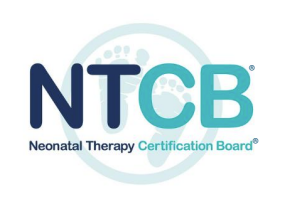Leader in Defining Excellence of Neonatal Care Standards
Pearls of Wisdom from the work and advocacy of Pattie Bondurant DNP, RN, ANLC, FAAN
Neonatal Care Expertise
With over 30 years of experience in pediatrics and neonatal nursing, Pattie Bondurant DNP, RN, ANLC, FAAN has dedicated her career to advancing care for infants and young children hospitalized in the neonatal intensive care unit (NICU). Before transitioning to the NICU, she worked extensively as a clinical nurse specialist in developmental pediatrics, caring for children post-NICU discharge. She then went on to dedicate several years to nursing leadership roles at top tier pediatric hospitals. Her leadership then extends beyond institutional settings, having played a pivotal role in a federally funded grant for transforming neonatal care as well as serving as a key stakeholder and nursing lead in the development and implementation of the American Academy of Pediatrics (AAP) NICU Level of Care Verification Program. With a regional, national, and internal focus, Dr. Bondurant has committed her career to standardizing care for NICU patients while supporting families and healthcare leaders in optimizing outcomes for vulnerable infants.
Motivation for Advocacy
As one of the nurses on the AAP Verification team with experience constructing care models across multiple NICUS, Dr. Bondurant recognized the need for nationally advocating for a more comprehensive approach to neonatal care. Her first-hand experience working with interdisciplinary teams fueled a deep commitment to advocating for this team approach, ensuring that specialists such as occupational and physical therapists, speech-language pathologists, social workers, and dieticians had a voice to contribute to optimal NICU care. For decades, the traditional medical model has dominated NICU care, so Dr. Bondurant, along with her colleagues, have advocated for a more integrated, team-based approach to the newest neonatal care standards which recognize that comprehensive, collaborative care is critical to improving outcomes.
Impact of Neonatal Therapy Certification
Dr. Bondurant affirmed that neonatal therapy certification plays a pivotal role in codifying the structure and defined processes of neonatal therapists nationally. She shared that respected members of the neonatal care team value the role of neonatal therapists in their unit, and certification provides a clearer distinction to the contributions and practice of the neonatal therapist. This underscores the importance of certification- not just for validation but for establishing a clear framework for contributions. She believes this has helped solidify where therapists fit into the broader NICU care model, moving beyond anecdotal involvement to a more structured and process driven best practices. The certification ensures that the necessary care is provided effectively, collaboratively, and is clearly aligned with the therapy standards outlined for each NICU level of care. Certification empowers neonatal therapists to advocate for their role both within their profession and across NICU teams. The certification provides clear guidance for neonatal therapist practice and reinforces their essential contribution as an integral member of the care team. Neonatal therapists contribute an element of balance to the care team through providing a holistic lens of care and gentleness to the developing infants and their caregivers as well as facilitating transition into early childhood once discharged from the NICU.
Future of interdisciplinary collaboration in the NICU
Dr. Bondurant shared that the future of interdisciplinary collaboration in the NICU lies in ensuring that every infant receives the right care at the right time in the right place. The American Academy of Pediatrics (AAP) has long emphasized risk-appropriate and regionalized care, recognizing that having the right personnel in place directly impacts outcomes. Neonatal therapy certification is still in its early stages, but its potential impact on NICU standards is immense. As the certification process evolves, it will continue to shape the role of neonatal therapists, further integration of care models and standards. By strengthening interdisciplinary collaboration, neonatal therapy certification will help build a more structured, effective, and equitable system- one that truly meets the needs of the most vulnerable patients and their families.

